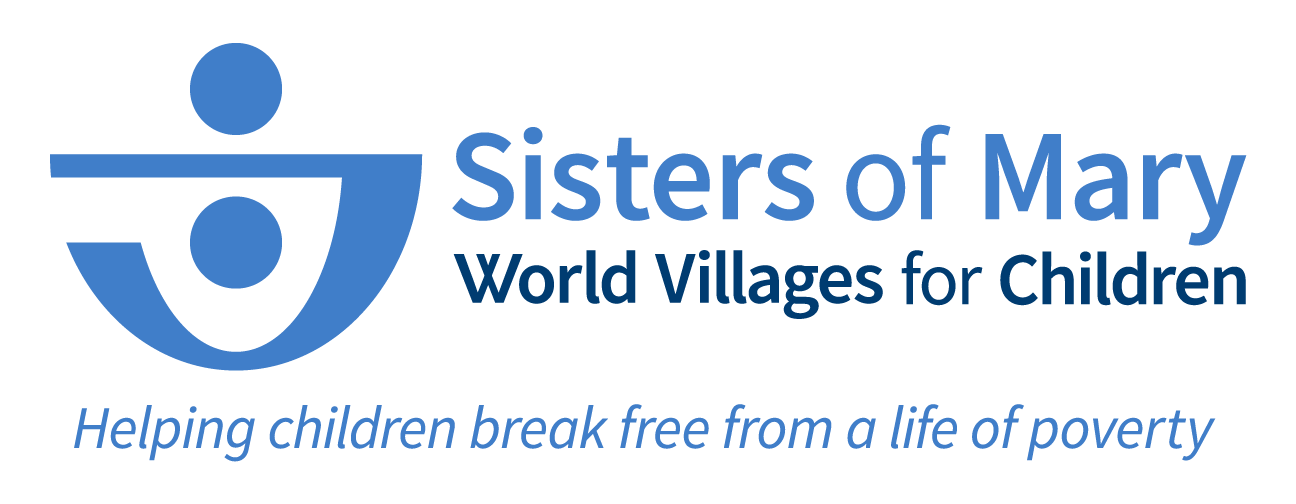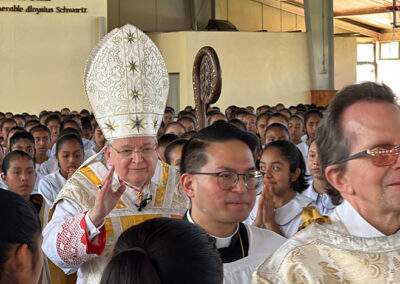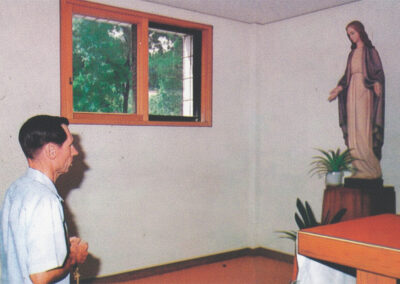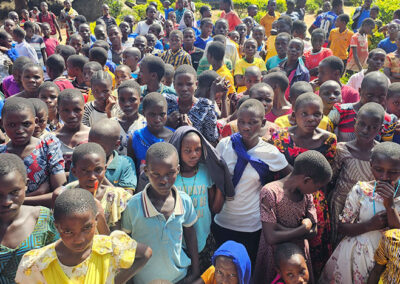World Villages for Children supports the Boystowns and Girlstowns operated by the Sisters of Mary in the Philippines, South Korea, Mexico, Guatemala, Brazil, Honduras, and Tanzania. At these live-in schools, the sisters educate and care for more than 20,000 children living in extreme poverty at no cost to the children’s families.



The sisters begin recruiting boys and girls from all over the countries where our Villages are located in July of each year and continue through October. They travel to some of the poorest regions, despite the limited infrastructure and potential risks, to ensure they reach the children who most need help.


To be accepted into the program, boys and girls need pass an entrance exam to make sure they have the educational prerequisites to succeed in our schools. Often the sisters have hundreds more children apply to each Village than they have the capacity to accept. They prioritize admitting the poorest of the poor – children whose families cannot afford enough food, who have had to leave school to begin helping to earn money, or who have been orphaned or abandoned.


Children arrive at the Villages in early January for the start of the school year. Many of the first-year students are amazed to find that for the first time in their lives, they have their own bed and a few pairs of clothes that belong just to them. Many also need to be taught proper hygiene habits, as their homes had no running water.



At each of the Boystowns and Girlstowns, the children are divided into groups of about 50, which they refer to as families. These families eat their meals together, share a sleeping area, and have their own mother-sister – a Sister of Mary assigned to care for that group. Children also receive regular medical and dental care while at school.


Most of our Boystowns and Girlstowns offer middle and high school education and children spend about 6 years going through our program. They are taught a range of subjects including math, natural sciences, social sciences, English, Spanish and/or other local languages, religion, music, and art. They also receive intensive vocational training tailored to local industries and businesses. Welding, electronics, computer and mechanical drafting, automotive mechanics, carpentry, cooking, dressmaking, graphic design, and jewelry making are some of the skills students learn through our programs. Boys and girls also participate in several sports while at our schools. They live at the school year-round, returning home to visit their families over the Christmas holiday.












We partner with local businesses so some of our older students can receive on the job training, and many of these arrangements lead to fulltime employment once the children graduate. Because of the quality of the education and training children in our programs receive, local companies are usually eager to hire and actively recruit the children coming out of our schools. Some of our graduates elect to continue on to higher education, but many need to begin working right after graduation to help support their families.


Graduates of our schools have gone on to become teachers, doctors, engineers, lawyers, architects, chemists, government officials, and business managers, among many other professions. Most stay involved with our schools throughout their lives, returning for different celebrations, volunteering their time or expertise, hiring subsequent graduates, and helping the sisters identify families who need the sisters’ help. Many of the children who go through our programs also go on to pay for the education of their younger siblings and invest in their local communities, helping to change the lives of many others living in poverty.


Not only do our Boystowns and Girlstowns empower tens-of-thousands of children to go from living in extreme poverty with little control over where their next meal would come from to being self-sufficient, productive members of society, but they also transform these children into forces for good within their communities. Through this model, investing in one child’s future has an exponential effect in the fight against global poverty.
We are so grateful to all of our generous supports whose contributions have made this work possible. Your kindness has transformed the lives of 150,000 children and counting.






